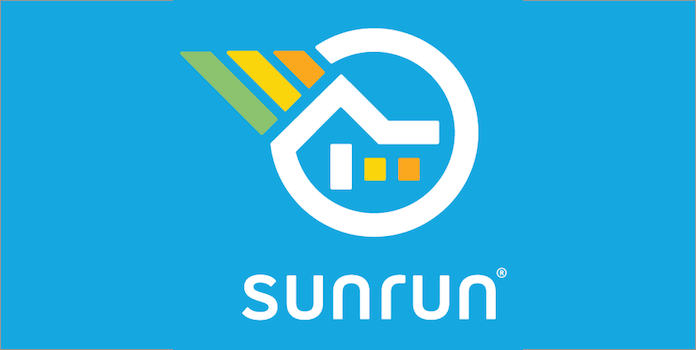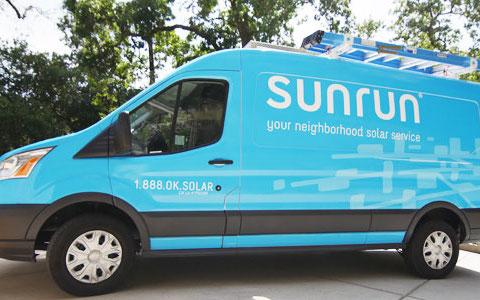Is Sunrun a Good Deal?

Are you thinking about installing solar with Sunrun?
Maybe you talked to them at Costco, or they knocked on your door. Now you want to know: is Sunrun a good deal, and if going solar with Sunrun is a wise investment. Basically, you want to know that, by working with Sunrun, you’re saving the most money possible.
To be sure of this, you need to compare the cost of Sunrun against both the cost to continue purchasing electricity from the utility as well as how Sunrun’s prices compare to other installation companies like SolarCity and NRG Home Solar.
But that’s not all you need to compare. Cost means nothing without good service, quality installation practices, and good finance options. If you’ve got the cheapest solar installation in the neighborhood, but it doesn’t run half the time, you’re not going to be saving much money!
Below, we look at all of these issues – installation quality, costs, customer service, and finance options – to determine if Sunrun is a good deal, both in comparison to other solar companies as well as the utility.
Quality of installation
Overall, Sunrun’s installation quality is comparable to other solar installers. Online reviewers both praise and warn against their installation practices in equal measure – depending on their own experience. We’ll explain more about that in the next section.
Installation practices
Sunrun actually has very few internal sales and installation staff. Instead, they hire local sales companies and installers, then mastermind the operations and project management, as well as provide financing.
With this in mind, the quality of the installation largely depends on who installs your system. Since Sunrun works with many different installers in so many different states, it’s difficult to say with certainty whether your installation experience will be smooth or rocky. To be sure, your installation will always be safe and up-to-code – city or county building inspectors will make sure of that – but it could take a few tries if the installers are inexperienced or careless and fail city inspections (meaning installers must spend extra time fixing any problems and require extra visits from the inspector).
Equipment
For the most part, large national solar installers use middle-of-the-road, ‘standard’ equipment, and Sunrun is no different. They focus on good products with good warranties, like the Hanwha Q Cell series of solar panels for example, which perform well in a variety of fairly standard situations (simple roofs without much shading).
With their equipment, solar companies are always balancing cost against quality. With this in mind, you’ll get similar equipment no matter what big company you go with. Think about it like this: Kroger, Safeway, and Publix are grocery stores that all sell similar grocery products, even though they are different stores. You can buy very similar ‘standard’ items from all of them. These companies know what products fit the vast majority of lifestyles and eating habits. If you want a premium or specialty product, though, you’ll probably have to go to a specialty, premium shop.
Solar is the same way. If you want specialty items – an ultra-high quality inverter, or American-made solar panels for instance – you might be better off contacting small, local installers that have more flexibility in their offerings.
But for the vast majority of homes, Sunrun equipment is exactly what you need – no more and no less. And unless you’ve got special requirements, you’ll get similar offerings from most of the large installers.
So does Sunrun offer something special in regards to equipment or installation practices? To be honest, not really. You’ll get similar offerings from most large installers.
Customer Service
In general, the solar industry isn’t known for great customer service – these large national companies are growing so quickly that they simply can’t keep up, which makes it hard to provide consistent, reliable service. Take a look at Yelp, Google, the BBB or any other review site and you’ll find that Sunrun reviews are very similar to other solar companies: very average, with some great reviews and some horrendous reviews.
Case in point: In San Francisco – the home of Sunrun – their Yelp review is 3 out of 5 stars (based on 153 reviews), very similar to SolarCity’s 2.5 stars (285 reviews) and Sungevity’s 3 stars (based on 159 reviews).
For every positive review of Sunrun, there are similar reviews of SolarCity and Sungevity:
- Sunrun: “I… absolutely love Sunrun’s policies and absolute commitment to make… a remarkable customer experience.”
- Sungevity: “I am so happy I chose Sungevity! I just loved all the extra touches and attention to details!”
- SolarCity: “Sure glad I picked SolarCity. I have nothing but the best anyone can offer!”
And for every negative review of Sunrun, there’s a similarly negative review for the others:
- Sunrun: “Worst company ever. Biggest mistake of my life signing with Sunrun.”
- Sungevity: “Warning: STAY AWAY from Sungevity! I wish I could give a ZERO star for this company.”
- SolarCity: “One of my worst experiences so far. I bought 43k in solar and solar city has lied and or dropped the ball on their end, [costing] me thousands of dollars.”
Obviously, your experience depends on your project manager, salesperson, and installation crew, but overall Sunrun doesn’t fare much better – or worse – than any other big solar company. Before moving forward with any company, be sure to read online reviews for their specific branch in your area (Yelp makes that easy) and talk to locals who’ve worked with them before.
Financials
Now that we’ve hit installation quality and customer experience, let’s move on to the big one: financials. You might be able to stomach a poor customer experience and then quickly get over it, but if your solar installation doesn’t save you money – you’re in for a rough 20 years.
Like we mentioned, to make sure you get a great deal, you need to compare Sunrun’s costs to:
- Cost to install solar with other solar companies
- Your utility costs (if you continued purchasing all your electricity from them)
Is Sunrun a good deal compared to other solar companies?
In a word: no.
We mentioned Sunrun’s business model above – that they hire outside sales and installation companies in a bid to lower operating costs, which they can then pass on to you through cheaper installation prices. However, their public filings tell a different story.
In the fall of 2016, the National Renewable Energy Lab published their study of the solar industry. In the report, they analyze three national installers’ installation costs, including Sunrun and SolarCity. They found that Sunrun’s costs of $3.63 per watt were much higher than the other national installers they looked at, ie. Vivint Solar’s $3.21 and SolarCity’s extremely low $2.71 (p.17 of the report).
Sunrun’s installation costs were a full 75% higher than SolarCity! When we look closer, we see that Sunrun’s overhead, as well as actual installation costs, were much higher than the other two – somewhat of an anomaly since the entire reason for their business model is decreased operating costs.
By the end of 2016, Sunrun had dropped that cost down to $3.41 per watt – a respectable reduction, but still much higher than their rivals.
This should probably go without saying, but higher costs for the installer means higher costs for the buyer. If it costs more for Sunrun to install solar, you can be pretty certain you’ll pay more as well. This doesn’t seem like a great deal to us.
Is Sunrun a good deal compared to the utility company?
This is where the story gets a little brighter. Even with Sunrun’s higher costs compared to other solar companies, you can still save money going solar with them.
Calculating your total savings with Sunrun is fairly easy. You just need to compare your total installation cost for your solar system against how much it would cost you to continue purchasing electricity from your utility. Check out the end of our article How Big and Expensive is a 12 kW Solar System? for a step-by-step guide to calculating your savings.
For convenience, here’s a quick example:
Sunrun will install a 5kW solar installation on your roof for $17,050 (5000w x $3.41).
You live in Salt Lake City and, over 25 years, a 5kW installation will produce 169,852 kWh according to NREL’s online calculator PVWatts (and accounting for solar panels’ 0.08% degradation rate).
With electricity costing an average of $0.107 per kWh in Utah, and rising 3.4% on average each year, 169,852 kWh would cost you $27,583.
Now we simply subtract your original investment from the utility’s total price to find your total savings of $10,553.
You might save more by installing with another company, but Sunrun is still cheaper than the utility!
How about Sunrun PPAs and leases?
The savings calculations above are for cash purchases, so you might be wondering about Sunrun leases or power purchase agreements (PPAs). Solar leases and PPAs don’t require you to put any money down like a cash purchase, which is why they’ve been so popular over the last 10 years. Sunrun foots the initial bill to install your solar system, then you pay them back over the life of the agreement (typically 20 years).
As with any financing (like solar loans, home mortgages, and car leases), by the end of the contract you actually end up spending more money than if you purchased outright. With solar, obviously your total financial savings are going to be much, much lower than with a cash purchase.
Solar companies typically keep the details of their financing structure pretty close to their chests, so it’s hard to find information on exactly how Sunrun calculates their customers’ lease payments. Considering Sunrun’s higher installation costs, it would be surprising if their leases were offered at a lower cost than other solar companies.
The best advice we can offer is to receive quotes from several installers for the same lease type and installation size. For example, a no-money-down 20-year lease with fixed monthly payments for a 6.5kW solar installation. Then you can compare apples-to-apples to see who offers the cheapest leases or PPAs.
The Bottom Line
So is Sunrun a good deal? Well, let’s check our boxes:
- Are their installations of higher quality than other solar companies? Not really
- Do they offer better service? Not really
- Are they cheaper than other solar companies? To the contrary… they are more expensive
- Are they cheaper than the utility? YES
- Can you save money going solar with Sunrun? Absolutely yes.
- Can you save more money going solar with another company? It would appear so.
Have you looked into working with Sunrun? Let us know what you decided to do in the comments below!


